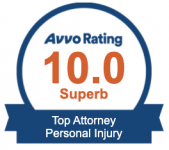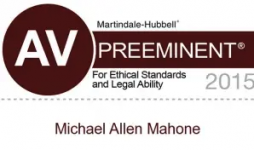New Orleans, LA Longshoreman Attorney
Here’s a fact: maritime workers in Louisiana cannot obtain workers’ compensation benefits under Louisiana law. This is problematic, seeing as the average maritime worker faces a high-risk work environment every day.
If you’re a longshoreman, harbor worker, or work one of the various dock jobs, the Longshore and Harbor Workers’ Compensation Act (LHWCA) was created for your protection. If you have an offshore accident or suffer an offshore injury, you may be entitled to benefits under the LHWCA.
If a maritime worker, longshoreman, or harbor worker is injured on the job, contacting a New Orleans longshoreman attorney is vitally important. They know how the LHWCA works and how to present your case best.
What is the Longshore and Harbor Workers’ Compensation Act?
Maritime workers face high-risk conditions and suffer severe accidents and injuries often. The LHWCA was created to provide benefits to a maritime worker injured or killed on the job. These monies include medical benefits and lost wage payments. They are typically paid by your employer or their insurance company.
Who is Protected by the LHWCA?
The LHWCA protects longshoremen, harbor workers, most people who load and unload ships, truck drivers who transport shipping containers from the docks to their destination, and civilian employees on military bases. Non-maritime employees could be protected if their work-related injury is suffered on navigable waters.
One of the complexities of the LHWCA is merely understanding if you qualify or not. This is one of many reasons why you are strongly advised to contact an experienced attorney for assistance before you begin the process.
The LHWCA excludes the following individuals, according to the US Department of Labor:
- Seamen;
- Employees of the US government or any state or foreign government;
- Employees whose injuries are solely caused by their own intoxication; and
- Employees whose injuries are the result of them harming themselves.
The LHWCA excludes the following workers if they are also covered by a state workers’ compensation law (such as the Louisiana Workers Compensation Act):
- Workers who perform office work;
- Workers employed by a club, camp, recreational operation, restaurant, museum, or retail outlet;
- Workers employed by a marina who are not engaged in work on that marina;
- Individuals working on a recreational vessel under sixty-five feet in length;
- Those employed by suppliers, transporters, or vendors, temporarily doing business on a maritime employer site, are not engaged in work normally performed by employees of that employer covered under the Act.
These are just a handful of examples of excluded workers under the Longshore Act.
The LHWCA Claims Process is Highly Complex
It’s highly recommended to obtain the services of an offshore accident lawyer if you’ve been injured on the job. That goes for shipyard workers, harbor workers, longshoremen, and also workers aboard fixed platforms. If you’ve been involved in an accident or been injured due to negligence, it’s not recommended to go at it alone.
The reason why is simple; the LHWCA claims process is highly complex and confusing. The LHWCA test states that an injured worker’s duties must be related to maritime duties and that the employee must work on or near navigable waters. Eligible sites include areas used for loading, unloading, building, repairing, or dismantling maritime vehicles.
Adding to the complexity of the process, one must be keenly aware of the Longshore Act “extensions” before deciding about the proper course of action. These extensions entitle injured workers to the benefits of the Longshore Act, even if they are not otherwise covered by it:
- Defense Base Act: The Defense Base Act protects civilian workers on US military bases.
- Outer Continental Shelf Lands Act: Covers employees working on the Outer Continental Shelf of the US to explore and develop natural resources. For example, this includes offshore platform workers. The Outer Continental Shelf refers to all submerged land, subsoil, and seabed belonging to the US and is lying seaward and outside the states’ jurisdiction.
- Non-Appropriated Fund Instrumentalities Act (NAFIA): covers civilian workers who work for businesses serving the armed forces, such as military base exchanges and military recreation facilities.
Workers’ Compensation Benefits Provided by LHWCA
The Longshore and Harbor Workers’ Compensation Act (LHWCA), also known as the ‘longshore act, provides occupational injury and disease benefits to maritime workers. The LHWCA can provide compensation for past and future medical expenses and loss of earning capacity. It also provides permanent partial disability benefits, while some states’ workers’ compensation acts do not. Any worker currently employed and working on a navigable waterway in the U.S. is eligible for benefits.
Other Non-Workers Compensation Claims By Longshoremen:
Longshoremen are not limited to claims under the Longshore and Harbor Workers Compensation Act. In addition, it may be that the longshoreman’s injuries were caused by a third-party contractor working on the same site. If that occurs, the longshoreman would have a third-party claim that would require a showing of negligence to hold the contractor liable for the resulting injuries.
In addition, if the negligence of a vessel injures a longshoreman, he or she may have a 905b claim against the vessel owner. This applies even if the vessel owner is the longshoreman’s employer.
Dedicated to Protecting the Rights of Longshoremen and other Maritime Workers.
A maritime injury is often physically damaging to the point where compensation benefits are considered to cover medical treatment. The Mahone Firm handles maritime personal injury cases. If you have had an accident or injury on navigable waters, a harbor, or a pier, then you may qualify for compensation.
Call The Mahone Firm for your Free Legal Consult
If you are a longshoreman injured on the job or involved in an accident due to negligence, contact The Mahone Firm today for a no-obligation legal consultation. Longshoremen attorney Mike Mahone defends the rights of injured maritime workers. He can help you through the process of identifying the various sources of compensation available to you and vigorously pursuing your rights. The consultation is no obligation and will determine if you have a strong case. Call today before your legal rights slip away.






